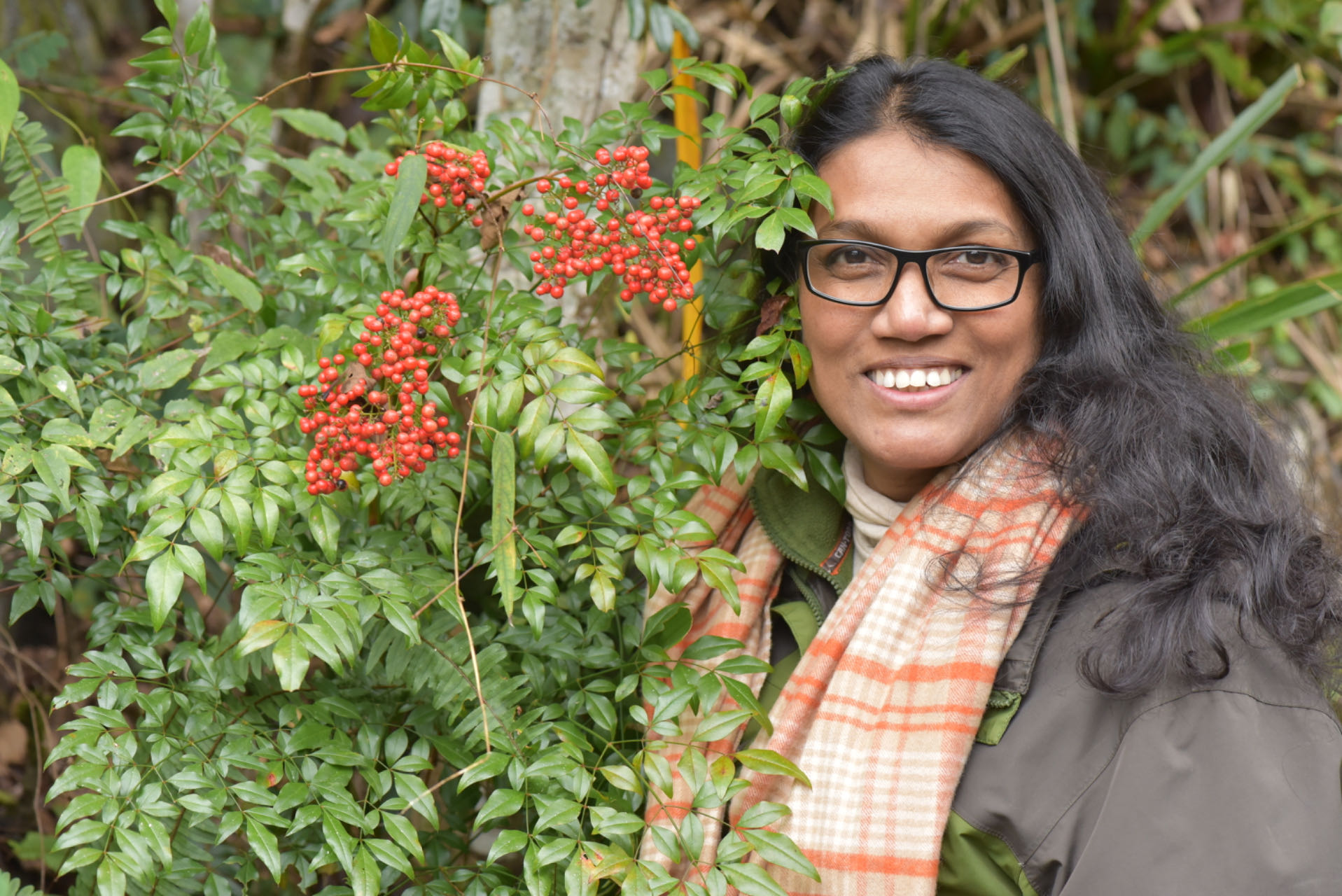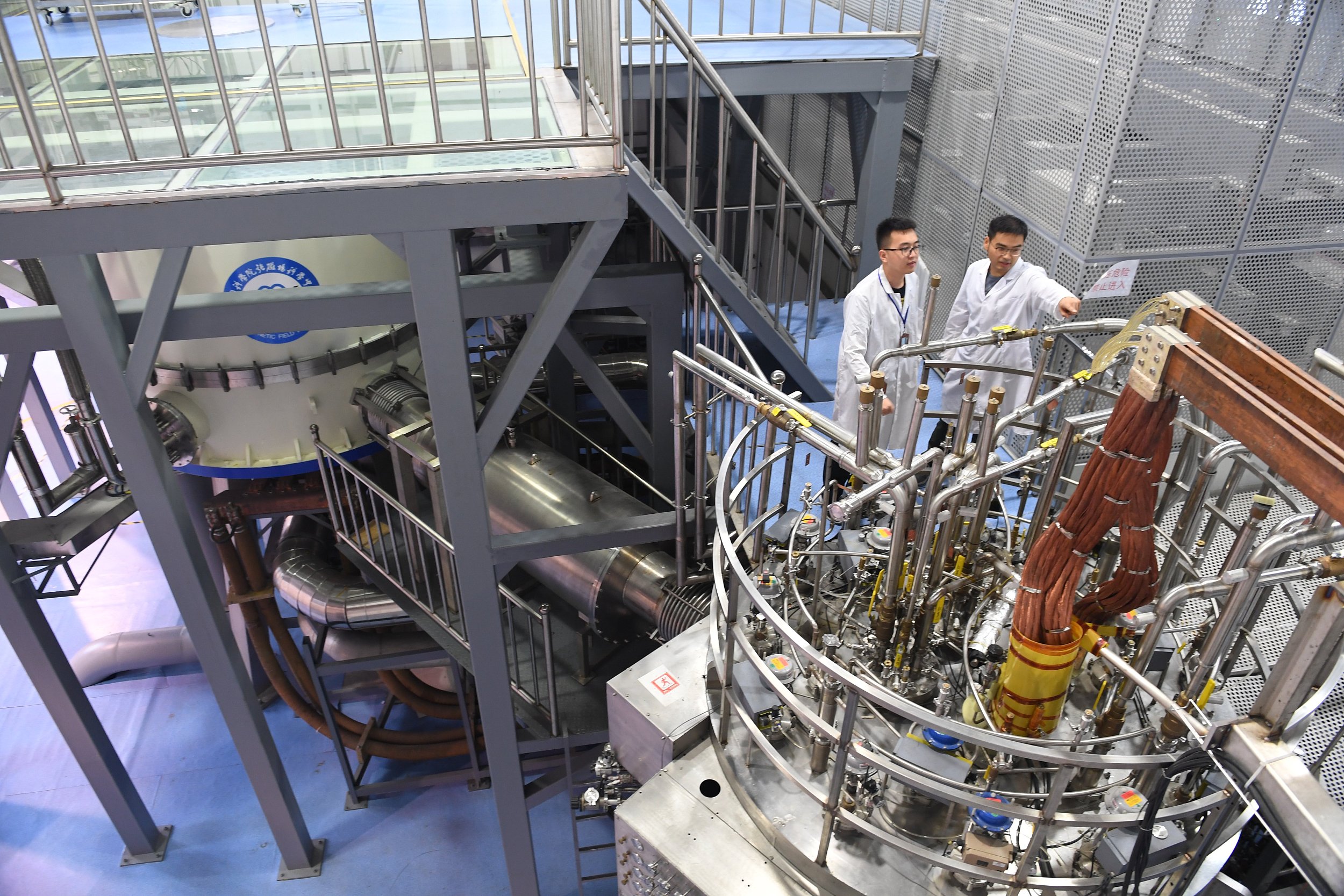Unveiling Nature's Wonders
By LONG Yun & BI Weizi

Professor Uromi Manage Goodale. (COURTESY PHOTO)
Nature is a vast and intricate masterpiece that is full of wonders to be explored. In a recent interview with Science and Technology Daily, American Professor of Plant Ecology Uromi Manage Goodale from Xi'an Jiaotong-Liverpool University (XJTLU), painted a vivid portrait of the nature's gifts.
Curiosity unleashed
When recalling the starting point of her academic journey, Goodhale said, "It was my father who unleashed my curiosity about plants. When I was a young child, I remembered my father told me that just like children need water, plants also need water."
Throughout her career, Goodale has been propelled by pivotal moments that deepened her connection to the natural world and botanical science. She reminisced about the profound influence of her former advisor, Professor Graeme P. Berlyn, who ignited her passion for understanding the inner workings of plants.
In 2012, Goodale encountered an opportunity to conduct research in China. "When I heard about this opportunity, I was very excited," she said, adding that she had a childhood fascination with Chinese culture and history. The Chinese Academy of Sciences, which her mentors at Yale called "one of the best scientific institutions in the world," solidified her decision to embark on this new chapter.
Today, Goodale's research at XJTLU encompasses diverse topics within plant ecology, with a particular emphasis on seed biology, ecology, and conservation. Through her work, she seeks to reveal the secrets of seeds, shedding light on their crucial role in sustaining ecosystems and safeguarding biodiversity.
Profound influence
Her studies in plant ecology and seed physiology is more than fulfilling her academic curiosity. It is also a vital endeavor with far-reaching implications for tackling pressing environmental issues. "Temperature and water essential for seeds to grow are the two main factors that are changed due to global climate change," she emphasized.
Her work illuminates the intricate relationship between climate change and plant regeneration. Through studying how plants respond to shifts in temperature and water availability, she unveils the mechanisms that drive changes in plant communities and ecosystems. From droughts to heavy rains, plants are profoundly impacted by alterations in climatic patterns, leading to cascading effects on biodiversity and ecosystem health.
In her research group, Goodale focuses on key plant species, such as orchids, which play crucial roles in ecosystems worldwide. These species face numerous threats, including habitat loss and over-harvesting, which place them at risk of extinction. "Focusing on how they're growing and how the seeds of the species can be conserved can help us conserve some of these species," said Goodale.
Through techniques like low-temperature seed banking, Goodale aims to safeguard endangered plant species for future generations. She seeks to ensure the resilience of ecosystems in the face of environmental challenges by understanding the relationships among plants, pollinators and fungi.
A facilitator of learning
Goodale said she is committed to science outreach activities in order to ensure scientific knowledge reaches beyond the academic community. "Such activities should be a cornerstone in any scientific researcher's career because we need to make sure not only the experts and the scientific community, but the general public at large can also have an understanding of what our findings are," she said.
Furthermore, she takes pride in her role as a "facilitator of learning," rather than merely being a teacher. "A loving learning environment where our students are comfortable to ask questions and explore, that is what I aspire to do as a facilitator of learning," she said.
She also actively engages in popularizing science to inspire young minds and foster a deeper appreciation for scientific inquiry. She believes that science is not just about doing research, but also training students to ask questions and critically evaluate situations to in order to come up with innovative solutions that can make our world a better place.
At the same time, she cherishes her role of educating the next generation on tackling global environmental issues, particularly climate change.
In her free time, Goodale is adept at balancing her work and life. Her passion for languages and art has enriched her experience in China. "I find Chinese to be a very fascinating language with the four different tones," she said.
Through her linguistic pursuits, Goodale has forged connections and gained insights into Chinese life, further integrating herself into the fabric of the country. "If you can talk to people, you get to know the place better, and you learn to live a fuller life," she said.


